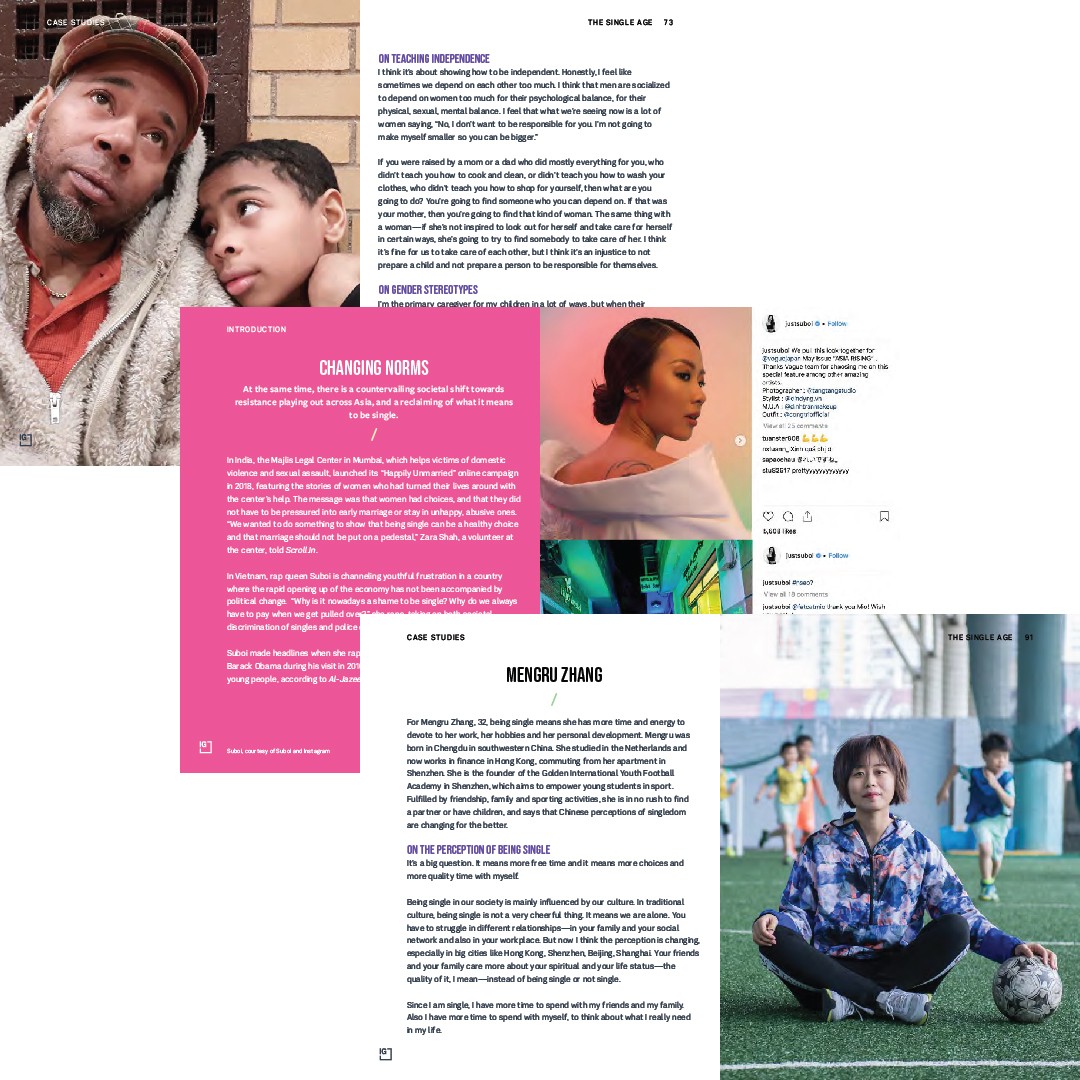Singledom, once feared as a desperate lonely fate, is now emerging as a lifestyle of choice for many across the globe. The majority of single people love being unattached and would prefer to be single than in a relationship, according to a new global study from Wunderman Thompson’s futurism, research and innovation unit.
According to ‘The Single Age’ the latest report from WT Intelligence, 66% of single people aged 18 -34 in China profess to loving being single, with 41% saying they would prefer to be single than attached. 78% say they are single by choice and 91% say it gives them more freedom. Those sentiments are equally strong if not stronger in older age brackets.
The attitude of Chinese singles is closely matched by those of singles around the world. In the US, around 64% of those aged 18-34 – and in the UK, around 60% – profess to loving being single.
‘The Single Age’ is the most in-depth research on the attitudes and behaviour of single people yet – surveying an even split of over 3,000 single and married/ attached men and women in China, the US, & the UK. The findings have profound implications for how sectors from property to travel to food to finance to retail and beyond are reframing their approach to this growing demographic.
The report probes the attitudes and motivations around the growing number of people around the world choosing not to marry, or becoming single after divorce. In Asia, the average age of marriage has risen to 26 in China, 30 in Hong Kong and Japan, 29 in Singapore and 31 in Taiwan, according to government statistics.
In China, where the proportion of single people rose from 6% in 1990 to 15% in 2017, equating to at least 200 million people, according to the government census, most of those polled (76%) say they believe in love but don’t need it to feel complete, with just 56% of singles saying being in a relationship makes them feel complete.
The financial freedom the single life brings appeals, with almost nine out of 10 China singles saying that making their own financial decisions is empowering and gives them confidence. 40% of singles say they like to spend their spare cash on treating themselves – compared to 36% of people in committed relationships.
Finally, 78% of China singles and 76% of China respondents in a relationship say that it’s becoming more acceptable to be single in today’s society.
The research busts old myths and prejudices around single people and in particular women, who are traditionally thought of as sad or desperate to be in a relationship. In the modern era, there’s a growing push to drop old stereotypes and to celebrate, rather than pity, single people.
“Being single has gone from being a lack of choice to a choice in itself,” said Chen May Yee, APAC Director of WT Intelligence. “This group is increasingly empowered, affluent and are staying single for the freedom to live on their own terms. They are flexing their economic muscle in various ways. Singles are fueling the growth of solo travel, solo dining and the pet economy.
“Brands that continue to push the outdated image of single people as somehow lacking do so at their peril. Innovative brands that recognize the cultural shift to singledom as a lifestyle choice will find opportunities in this space where old rules no longer apply. Welcome to the Single Age.”
The survey of 3,000 US, UK and China consumers was conducted in March 2019 in the US, UK and China by Wunderman Thompson’s proprietary inhouse consumer insights unit. In China, we surveyed 1,009 consumers, including 402 single respondents and 607 respondents in committed relationships.
Get the report at jwtintelligence.com/trend-reports/the-single-age/
















